Your dentist keeps telling you to floss more. Your gums bleed when you brush. Maybe you’ve got that morning breath that won’t quit, no matter how much mouthwash you use. So when you see ads for ProvaDent promising healthier teeth and gums through probiotics, you probably wonder if it’s legit or just another snake oil supplement.
Here’s what you need to know before spending your money.
What ProvaDent Claims to Do
ProvaDent sells itself as a dental probiotic supplement. The company says its tablets contain good bacteria that support oral health. Pop one in your mouth, let it dissolve, and supposedly these bacteria go to work fighting the bad stuff, causing cavities, gum problems and bad breath.
The pitch sounds simple enough. Your mouth has billions of bacteria living in it. Some are helpful, some cause trouble. ProvaDent claims to tip the balance toward the good guys. They say regular use leads to whiter teeth, stronger gums and fresher breath within weeks.
Each bottle contains 30 tablets. You’re supposed to take one daily, preferably after brushing your teeth. The tablets dissolve slowly so the probiotics can colonise your mouth properly. At least that’s the theory.
The Science Behind Oral Probiotics
Oral probiotics aren’t totally made up. Real research shows certain bacterial strains can help with dental health. Streptococcus salivarius K12 and M18 are two strains that studies have looked at. They produce compounds that inhibit harmful bacteria growth.
But here’s the catch. Most studies use specific strains in specific amounts. ProvaDent lists several probiotic strains on its label, but doesn’t always specify the exact colony-forming units or CFUs. That number matters a lot for whether probiotics actually work.
Some dental research shows promise for probiotics helping with things like gingivitis and plaque buildup. Other studies haven’t found much benefit at all. The science is still figuring this out, honestly.
Breaking Down the Ingredients
ProvaDent contains several bacterial strains plus some other stuff. Here’s what’s actually in these tablets and what we know about each piece.
| Ingredient | What It Does | Does Research Back It Up |
|---|---|---|
| Lactobacillus Paracasei | May help reduce cavity-causing bacteria and support gum health through anti-inflammatory effects | Some small studies show promise but need more research |
| Lactobacillus Reuteri | It could help with gum inflammation and might reduce plaque when used regularly | Mixed results in studies, works better for some people |
| B.lactis BL-04 | Supports immune function and may help balance oral bacteria to prevent infections | Limited specific dental research, more gut health data |
| Inulin | Prebiotic fibre that feeds good bacteria so they can grow and multiply better | Generally safe, but doesn’t directly fight dental problems |
| Malic Acid | Natural compound found in fruits that may help with saliva production and whitening | Safe, but the effects on teeth health aren’t well proven |
| Tricalcium Phosphate | Mineral that supports tooth enamel and might help with remineralisation of weak spots | Good for bones and teeth, safe and studied ingredient |
The blend isn’t dangerous, but whether it delivers on promises is another question.
Real Customer Experiences
ProvaDent reviews from actual buyers paint a mixed picture. Some people swear the tablets helped their gum bleeding stop after a few weeks. Others say they noticed fresher breath that lasted longer than regular mints or gum.
One woman mentioned her dentist commented on less plaque buildup at her cleaning. She’d been using the tablets for three months. Another guy said his sensitive teeth felt less painful when drinking cold stuff.
But plenty of folks saw zero change. They took the tablets daily for a month or two and didn’t notice any difference in their mouth health. Their gums still bled, their breath still smelled funky by afternoon, and their next dental checkup showed the same old problems.
Cost comes up a lot in complaints. A single bottle runs around 70 bucks on the official site. That’s 70 dollars for one month’s supply. If you buy multiple bottles at once, the price drops, but you’re still looking at a big upfront payment.
Common Complaints Worth Knowing
Several patterns show up in negative reviews. Shipping delays frustrate customers who wait weeks longer than promised. Some orders never arrived at all, and getting refunds turned into a hassle involving multiple emails and long waits.
The taste bothers some people. The tablets are supposed to dissolve in your mouth, but a few users describe them as chalky or having a weird aftertaste. Not terrible, but not pleasant either.
Auto-ship programs trap unwary buyers. Some folks thought they ordered a one-time purchase but got enrolled in monthly shipments. Cancelling these subscriptions proved harder than it should have been. Customer service responses were slow or unhelpful, according to multiple complaints.
A few people reported mild stomach upset or digestive weirdness. Probiotics can cause gas or bloating when you first start taking them. Usually, that goes away, but not always.
Is This Product Actually a Scam
Scam might be too strong a word. ProvaDent appears to be a real company selling a real product. They’re not just taking money and disappearing. But their marketing definitely overpromises compared to what most customers experience.
The biggest red flag is the lack of published clinical trials specifically for their formula. Lots of dental probiotic companies throw around general research about oral probiotics without proving their exact product works. ProvaDent falls into that camp.
Their website shows testimonials and before-and-after photos, but those could be cherry-picked or even fake. No way to verify if those people are real customers or paid actors. Genuine third-party reviews tell a different story from the glowing stuff on their site.
The 60-day money-back guarantee sounds good until you read the fine print. Returns require jumping through hoops, and some customers report never getting their refund even after sending bottles back. That’s sketchy behaviour even if the product itself isn’t a total fraud.
What Dental Professionals Think
Most dentists aren’t against oral probiotics, but they don’t see them as a replacement for basic care. Brushing twice daily, flossing, and regular cleanings still matter way more than any supplement.
Some dental hygienists recommend probiotics as an add-on for patients with chronic gum issues. But they usually suggest specific strains with proven track records, not whatever blend a company throws together.
The American Dental Association hasn’t endorsed oral probiotics yet. They say more research is needed before making firm recommendations. That doesn’t mean probiotics don’t work, just that the science isn’t settled enough for official backing.
Better Ways to Spend Your Money
Seventy bucks a month could buy a lot of things that definitely help your teeth. A good electric toothbrush costs about the same as two months of ProvaDent and lasts for years. Water flossers run around 50 to 80 dollars and make cleaning between teeth way easier.
Regular dental cleanings twice a year matter more than any supplement. If cost is an issue, many dental schools offer cheaper cleanings done by students under supervision. Community health centres also provide affordable dental care.
Basic habits beat fancy supplements every time. Brush for two full minutes twice daily. Floss at least once. Cut back on sugary drinks and snacks. Drink more water, especially after eating. These boring tips actually work, unlike most miracle products.
The Bottom Line on ProvaDent
Oral probiotics might help some people with specific dental problems. But ProvaDent reviews & complaints suggest this particular product doesn’t live up to its hype for most buyers. The high price, paired with inconsistent results, makes it a risky purchase.
If you’ve got extra money to experiment and you’ve already nailed the basics, then maybe give it a shot. Just know you might be wasting 70 bucks. The refund process isn’t as smooth as advertised, so there’s real financial risk here.

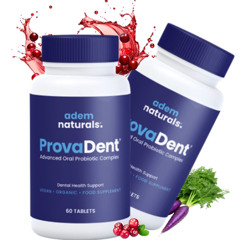
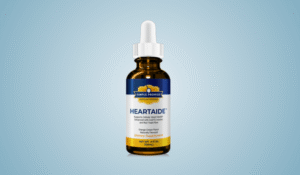
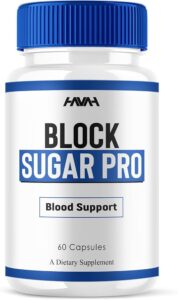
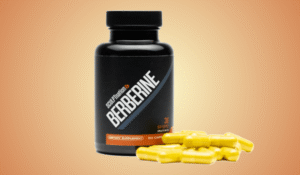
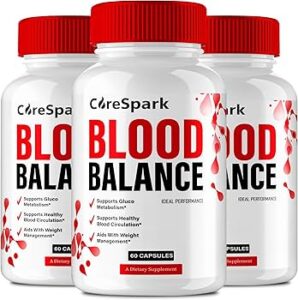
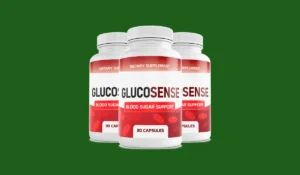
Be First to Comment